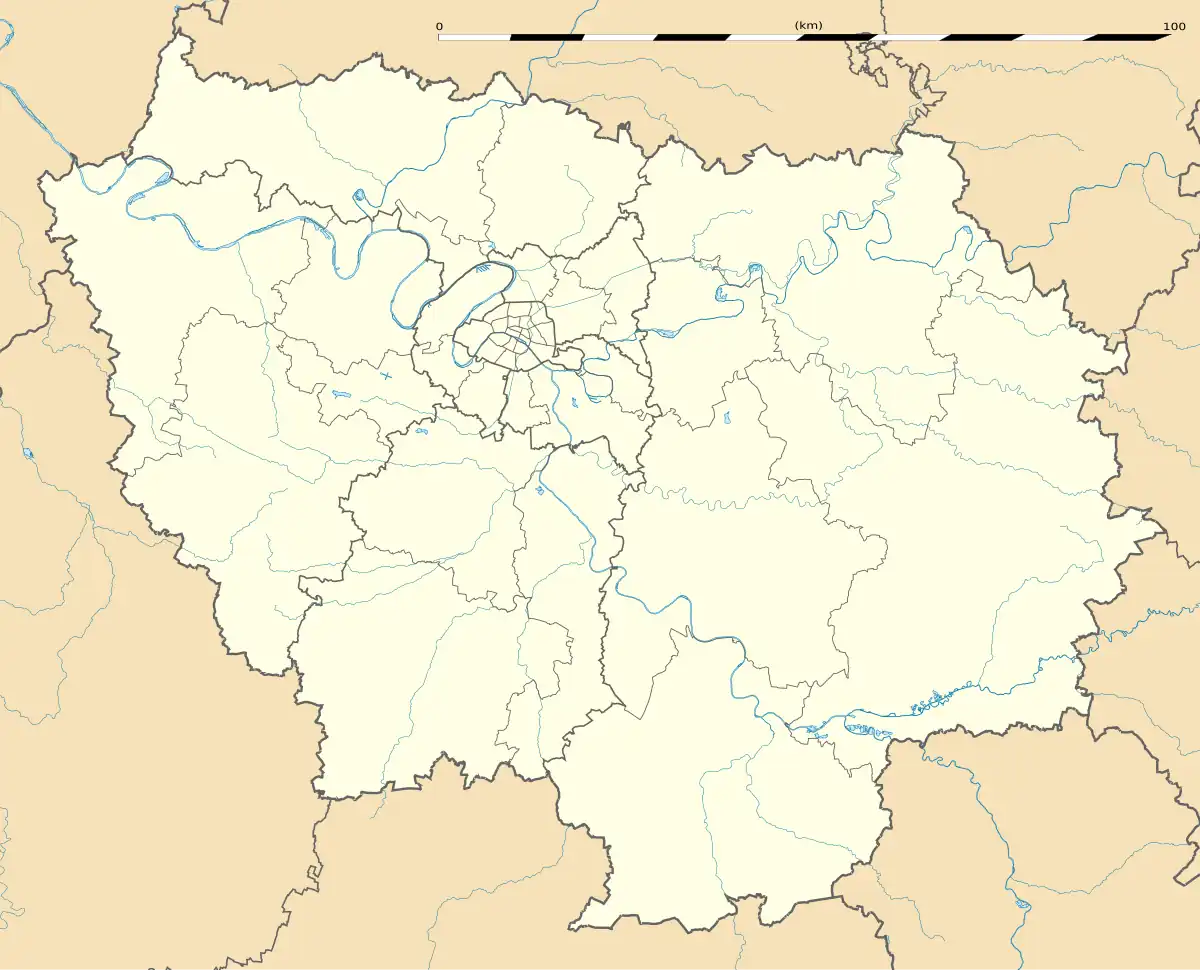Méré, Yvelines
Méré | |
|---|---|
Town hall | |
.svg.png) Coat of arms | |
Location of Méré | |
 Méré  Méré | |
| Coordinates: 48°47′13″N 1°49′06″E / 48.7869°N 1.8183°E | |
| Country | France |
| Region | Île-de-France |
| Department | Yvelines |
| Arrondissement | Rambouillet |
| Canton | Aubergenville |
| Government | |
| • Mayor (2020–2026) | Michel Recoussines[1] |
Area 1 | 10.32 km2 (3.98 sq mi) |
| Population (2022)[2] | 1,695 |
| • Density | 160/km2 (430/sq mi) |
| Time zone | UTC+01:00 (CET) |
| • Summer (DST) | UTC+02:00 (CEST) |
| INSEE/Postal code | 78389 /78490 |
| Elevation | 65–184 m (213–604 ft) (avg. 150 m or 490 ft) |
| 1 French Land Register data, which excludes lakes, ponds, glaciers > 1 km2 (0.386 sq mi or 247 acres) and river estuaries. | |
Méré (French pronunciation: [meʁe]) is a commune in the Yvelines department in the Île-de-France region in north-central France. François Quesnay a Physiocrat and one of the first to attempt to establish a rational science of economics, was born in Méré.
See also
References
- ^ "Répertoire national des élus: les maires" (in French). data.gouv.fr, Plateforme ouverte des données publiques françaises. 13 September 2022.
- ^ "Populations de référence 2022" (in French). The National Institute of Statistics and Economic Studies. 19 December 2024.
Wikimedia Commons has media related to Méré (Yvelines).